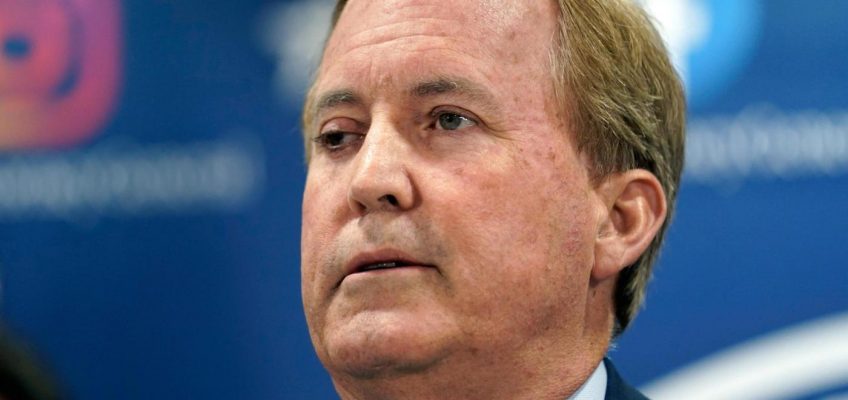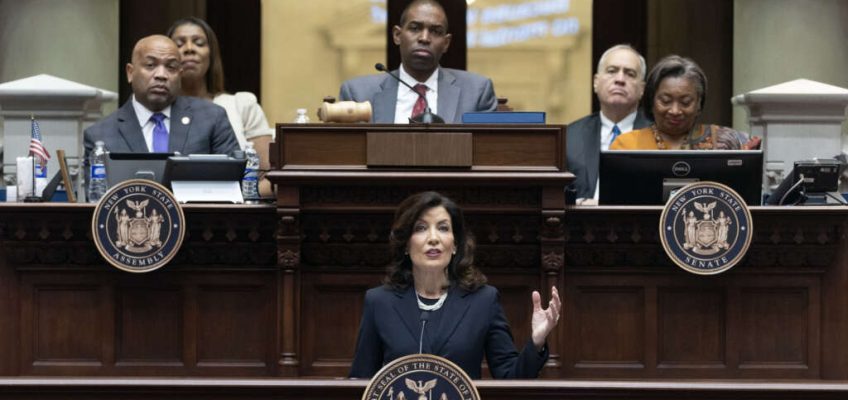“Every day of delay means more pollution, more suffering, and more costs for people who can least afford them.”
Gov. Kathy Hochul delivering her State of the State in 2023, where she first unveiled the state’s Cap-and-Invest plan. She’s stalled on moving the program ahead since. (Mike Groll/Office of Gov. Hochul)
Like many people, the first thing I do each morning is take a deep breath and stretch. Unlike some, this is quickly followed by reaching for my inhaler. Twenty years ago, I could run up four flights of stairs. Today, even a short walk to the corner store leaves me gasping for air. My official diagnosis is severe asthma, but what it really represents are the consequences of environmental injustice.
I’m a single parent to two kids in Brownsville, Brooklyn. Brownsville is a zone left behind by Con Edison where electrical power is sometimes short, so they shut off the elevators in the NYCHA houses. We don’t have healthy food options. It’s also quite literally hotter in our neighborhood because there’s fewer parks, trees and green space. More air pollution—smog—forms in the heat and humidity of the summer. Sometimes it feels as if I am trying to breathe through a straw.
My situation is not unique—it is the reality for hundreds of thousands of New Yorkers whose neighborhoods bear the burden of pollution. And we face impossible choices: medicine or heat, food or rent. Our budgets have been stretched beyond their limits, yet more is taken from us each year. We can’t allow for a shot at cleaner air to be taken away.
This is why Gov. Kathy Hochul’s retreat from the cap-and-invest program is devastating. This program would make large polluters pay for their pollution while generating approximately $3 billion annually to be invested in our communities. For people like me, it means cleaner air to breathe, utility rebates to lower our bills, good jobs and upgrades to neglected infrastructure.
Corporate lobbyists claim this program would hurt New Yorkers economically, but they never mention people like me who are already paying with our health and wallets. Done right, cap and invest would clean our polluted air, improve our health and lower our healthcare costs, while also delivering utility rebates directly to New Yorkers and funding energy efficiency upgrades that would lower bills long-term.
Clean air is not a luxury. Affordable energy is not either.
Years ago, Gov. Hochul championed a strong cap-and-invest program focused on affordability, but just recently she balked when it was time to issue the regulations, which she controls, to start the program. New Yorkers cannot afford this slow-walk any longer. We need Gov. Hochul to release the cap-and-invest regulations now.
Every day of delay means more pollution, more suffering, and more costs for people who can least afford them. I implore you to join us: call Gov. Hochul and demand that she advance a strong cap-and-invest program that holds polluters accountable.
Cynthia Norris is with New York Communities for Change and is a resident of Brownsville, Brooklyn.
The post Opinion: The Air We Can’t Afford—New York Needs Cap-and-Invest appeared first on City Limits.




